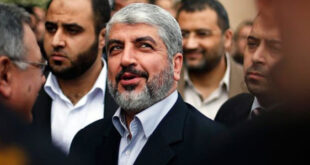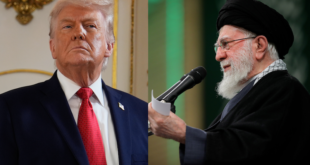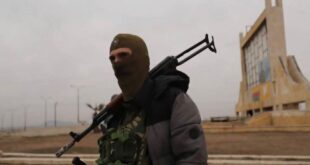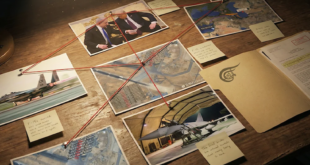KHARTOUM (AFP) — Sudanese President Omar Bashir rebuffed a plea from Washington’s top Africa envoy Tuesday to allow a UN peacekeeping force in strife-torn Darfur, after forcing her to extend her visit to secure a meeting at all.
The one concession Bashir did make to Jendayi Frazer, the US assistant secretary of state for African affairs, was an undertaking to consider the case of a Pulitzer-winning US journalist detained in the western region “from a humanitarian point of viewâ€. Frazer had brought with her an invitation from US President George W. Bush to meet him on the sidelines of the UN General Assembly in New York next month, Bashir’s spokesman Majoub Fadl Badri said after the talks. “The president reiterated the Sudanese government’s position rejecting the replacement of the African Union force with a UN one,” Badri said.
The deployment of UN peacekeepers to Darfur is seen as crucial to the success of a fragile peace agreement signed by the Khartoum government and the main rebel faction last May.
The undermanned and underresourced AU force in place for the past two years has struggled to patrol a region the size of France.
But Bashir and other Sudanese officials have consistently rejected a UN force and before his meeting with Frazer, the president even addressed a rally organised by the authorities to condemn a US-British draft resolution circulating at the Security Council calling for the deployment of UN troops.
The US envoy was initially due to wrap up her two-day visit on Monday night but extended her stay after failing to meet the president, officially because of his tight schedule.
She had even suggested that some of the sanctions already in place against the Sudanese regime for suspected terrorism links and human rights violations might be lifted if it agreed to accept UN peacekeepers.
Her mission had got off to a bad start Saturday when she was greeted at the airport by shouts of “Go Home” as an angry mob tried to cover her vehicle with anti-US banners. Protesters followed her to the US embassy the next day. Frazer did secure an undertaking to review the case of Paul Salopek, a US journalist on assignment for the Chicago Tribune and National Geographic who was charged with espionage by a court in Darfur’s largest town of El Fasher on Saturday. He and two Chadian assistants were also charged with reporting false information and entering Sudan without a visa.
The case would be reviewed “from a humanitarian point of view,” Badri said.
Khartoum had signalled it had no intention of softening its stance on a UN force in New York late Monday, boycotting a Security Council meeting called to discuss the Darfur conflict.
US ambassador to the United Nations John Bolton called the Sudanese absence “disappointing to say the leastâ€. Amid fears of a government offensive against rebels, Bolton said Washington and London would press for a vote on their draft before the end of the month.
“It is time for action. It is time for this council to uphold its responsibility and pass a resolution immediately authorising the deployment of UN forces,” he told the council.
Before leaving Washington, Frazer had warned of a massive military buildup in Darfur, where fighting and famine have left at least 300,000 people dead and 2.5 million homeless in three- and-a-half years.
“We are very, very, very concerned about this — the buildup of military forces,” Frazer had said, adding that both government forces and rebel factions that rejected the Abuja peace deal appeared poised for fresh fighting.
Washington accuses Sudanese government troops and their proxy Janjaweed militia of genocide over their fierce repression of the uprising launched by ethnic minority rebels in February 2003.
 Eurasia Press & News
Eurasia Press & News



